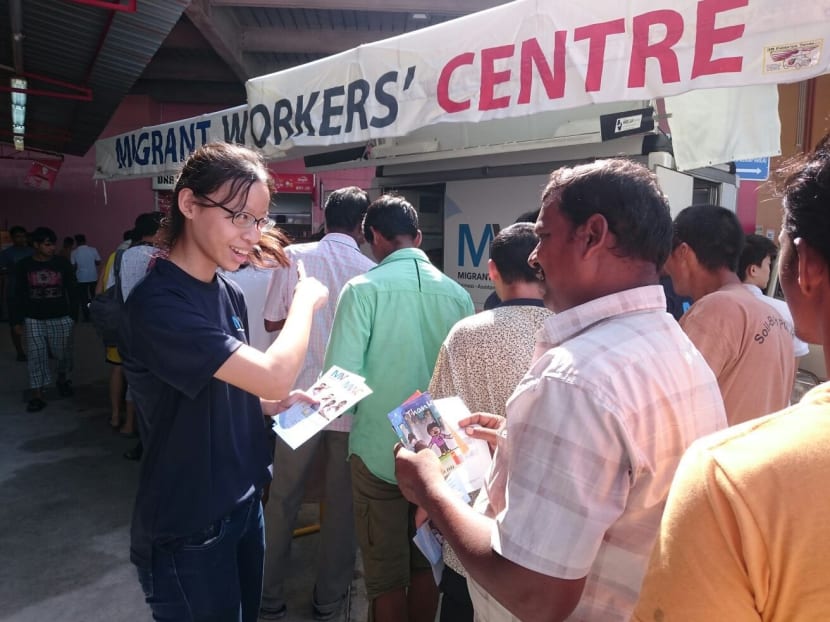Migrant workers get free remittance services and other perks with POSB membership scheme
SINGAPORE — Migrant workers may no longer have to face the hassle of standing in long queues to remit money back home, or worry about errant employers defaulting on salary payments with the launch of a free membership programme by the Migrant Workers’ Centre (MWC) and POSB.

MWC intends to outreach to migrant workers at various locations to encourage them to sign up for membership. Photo: MWC
SINGAPORE — Migrant workers may no longer have to face the hassle of standing in long queues to remit money back home, or worry about errant employers defaulting on salary payments with the launch of a free membership programme by the Migrant Workers’ Centre (MWC) and POSB.
A first of its kind here, the MWC-POSB membership will give migrant workers access to online banking services through the POSB jolly app, which was first piloted in 2016.
As part of its partnership with money transfer firm MoneyGram, the programme will allow migrant workers to remit money at no charge to Bangladesh, India, Indonesia and the Philippines.
Other services and perks include discounted airfares, insurance, telco services, and discounts on oBike rentals. Those using the app will also be able to check their banking transactions online, and top up their pre-paid SIM cards.
The membership programme was announced by NTUC Secretary-General Chan Chun Sing at a partner’s breakfast at NTUC Centre on Thursday (Feb 22), and it is expected to benefit 200,000 migrant workers in its first year.
It will be rolled out in two phases, with the first targeted at new migrant workers who submit their work permit application from April 1. Once an employer opens a POSB bank account for a new migrant worker, the MWC-POSB ATM and membership card will be issued.
The MWC will target existing work permit holders with POSB accounts in the second phase.
MWC chairman Yeo Guat Kwang said they plan to conduct education and outreach campaigns at workers’ dormitories, workplaces and recreation centres.
Mr Yeo said that the programme will help in the centre’s push for mandatory electronic salary payments for migrant workers.
“It will ensure salary records are properly kept, as we would be able to verify whether their salary has been paid promptly with the right amount, or whether there is illegal or unlawful deductions imposed on the workers,” he added.
While most employers and migrant workers TODAY spoke to welcomed the move, some felt that it would take time to change workers’ habits.
Bangladeshi worker Mondal Babu, 33, who works for a painting company, said he prefers remitting the cash through the bank or money exchange at Little India. “I’m more comfortable because we all speak the same language,” he said.
Agreeing, Bangladeshi construction worker Ahammed Azad, 32, said he has “no problem” with the current mode, as he usually only queues for between 10 to 20 minutes.
Nan Guan Construction managing director Akbar Kader said that workers might not sign up for the programme as they only make one banking transaction a month when they send money home. He currently pays his team of less than ten foreign workers in cash.
Mr Akbar said: “Once they remit the cash home, they keep a small amount for themselves, so it may be a bit difficult for them to keep going to the ATM to withdraw money, so they still prefer to keep cash (with them). I don’t know if there’s traction (for this initiative), and how many would want to use it.”
However, Mr Jimmy Tan, director of TechGems Engineering and Construction, felt that the move would provide added convenience for migrant workers. His company currently makes salary e-payments to some 200 foreign workers through POSB. He recalled past incidents of how workers lost the wads of cash they kept in their lockers’, or carried around in envelopes.
He said: “(With such bank accounts), they can have that sense of security. It reduces the danger of them losing their hard-earned money.”






